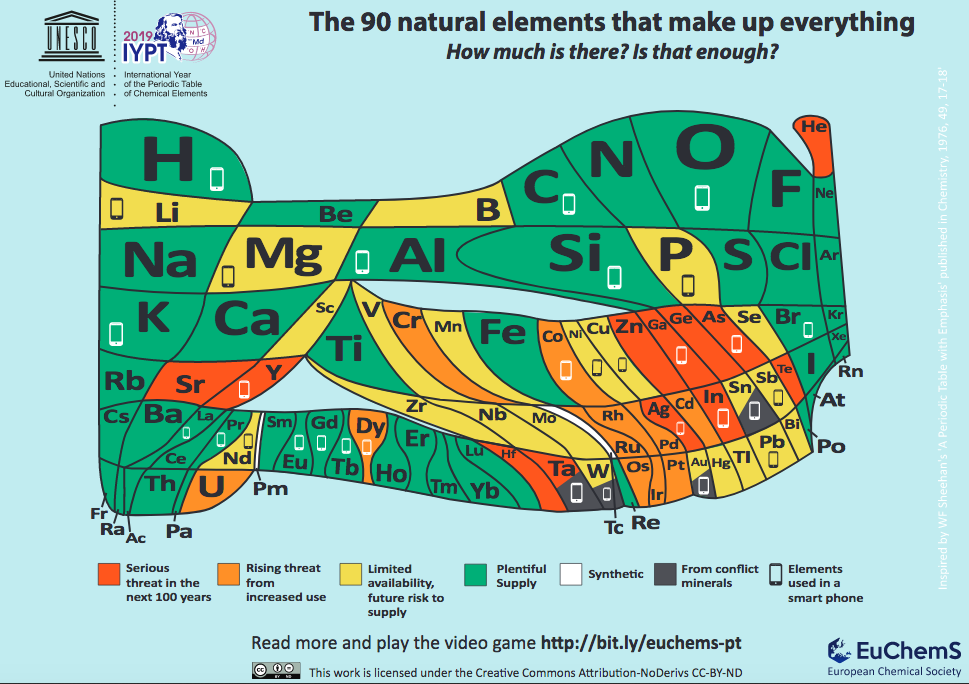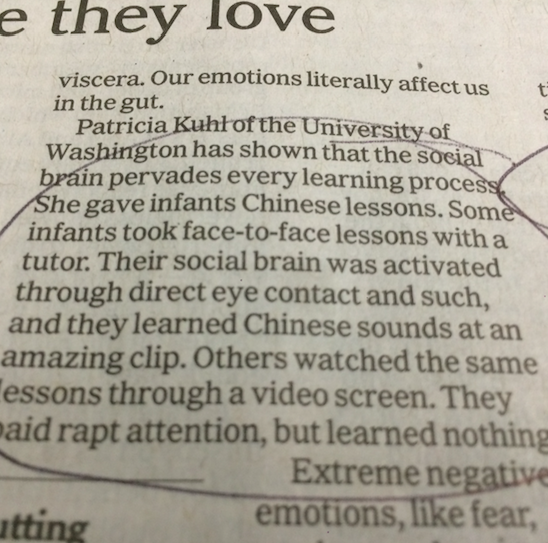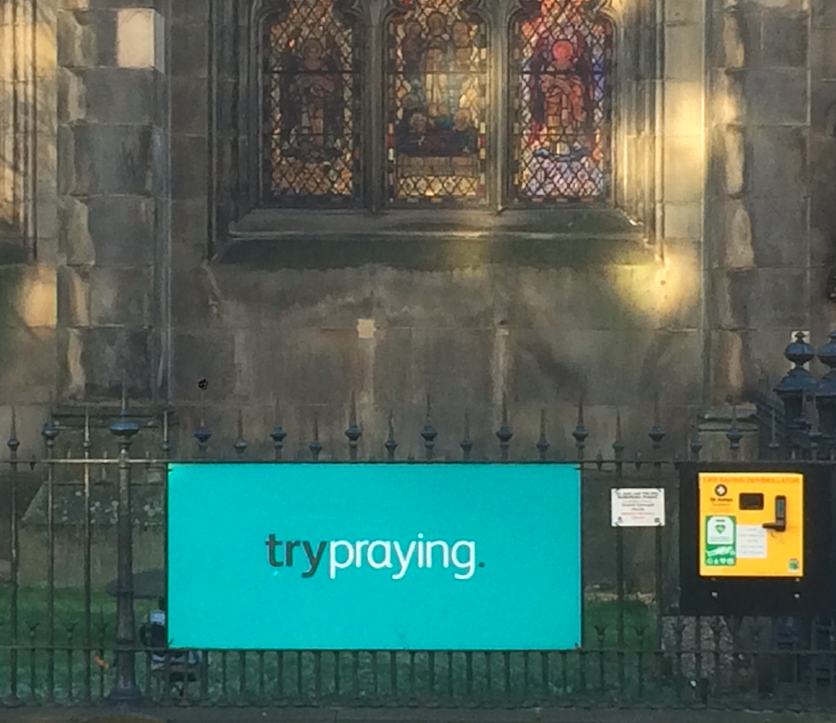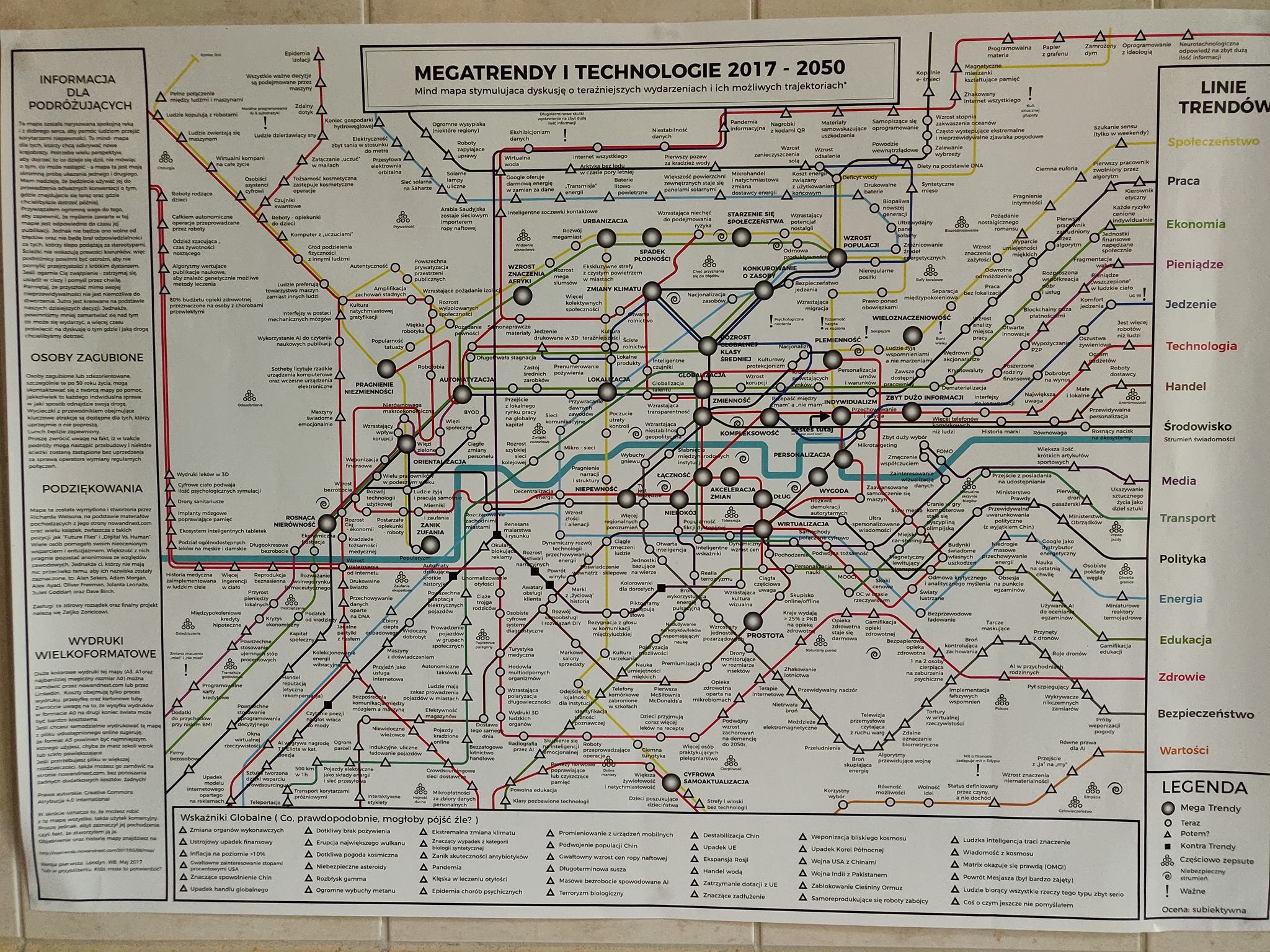One of the biggest problems with the current digital deluge is the tendency to no longer see what’s directly in front of us. The sheer amount of information now being passed around the world means that we’re becoming less able to filter what’s really important from what’s really not. Information is no longer power. Our deep and undivided attention is.
Constant digital distraction (which results in constant partial attention) also means that our concentration spans are shortening (or so they say) and our peripheral vision is narrowing. Throw in some headphones and things aren’t looking good, especially if you are seeking new opportunities or trying to identify new risks. This is because the early harbingers of forthcoming upheaval and disruption are often hidden in tiny snippets of seemingly trivial information or obscured in plain sight in the shadows and auditory obfuscations of our everyday existence.
So how can you spot these ‘weak signals’ or other forerunners of change? How can you spot things that don’t tend to announce themselves in huge data sets? How can you mine for insights in research groups when you don’t know exactly what you are looking for?
The answer is to develop a mind-set that’s always looking for these things. You need to become more attuned to instinct and gut feelings. You need to become furiously curious. You need constantly look for things that are new and might represent a shift in how things are seen or done. But to do this you need to unfreeze and then re-set your mind-set towards deep looking and deep listening.
You also need to go to where anomalies initially emerge, which tends to mean the edges or fringes of established markets and thinking. This might be young minds or it could be academic institutions or upstart start-ups. It might even be passionate users of particular products and services (‘super-users’) or particular places where being different or quirky is seen as being culturally useful or prestigious (California not North Dakota, although the urban fringes of Fargo might contain something, or someone, of interest).
Or you can be lazy. Cultural change often proceds technological or regularly change, so become attuned to new currents in advertising, music and film. For example, I heard the lyric “Don’t go digital on me” in a song lyric the other day. Is that significant? Or there’s an ad on TV for a chocolate bar with the slogan “undivide your attention.” Again, significant?
Beyond anecdotes like these it’s rather difficult to be precise. After all, how can one explain what one’s looking for when one doesn’t really know what one is looking for and whatever it is that you are looking for keeps changing the whole time? I think the answer to this is to accept that you will never fully know and to keep looking regardless.
This isn’t something that’s ad hoc. You cannot create a ‘search party’ that looks for weak signals for a week and is then disbanded. It’s something that’s continuous and the activity will suit some personality types more than others.
Let me give you a few more examples. I was in Brooklyn, New York, recently. I was in a hotel lift and someone (I’m assuming not a graffiti artist) had written “Lonely together” in huge white letters on the glass panel inside the elevator. Why was it there? What did it mean? It could have been a subliminal ad for a TV show of the same name or perhaps it meant something more?
Or how about a few years ago when Google bought Zagat, the publisher of local restaurant guides (published on paper). This made no sense. Why would an online publisher (sorry, tech company) buy someone that puts ink on dead trees? Could it be that they were interested in local expertise or search or did they see a role for paper in a digital world?
(come to think of it, why did Google send me summaries of my Google Adwords campaign in a posted letter – on paper?). Question anything that doesn’t make sense or doesn’t fit an established pattern. To invert a popular schooldays phrase: question every answer.
Of course, if you start frequenting the fringes you will inevitably bump into some fairly fringe people. Some will be weird, quite possibly annoying and probably of no use whatsoever. But don’t judge these people too soon. Maybe they aren’t crazy. Maybe they are right, but just a little bit early. What’s thought of as weird, crazy or just plain impossible one moment has a habit of becoming conventional wisdom over time. So, button your lip and keep your mainstream prejudices and cynicism to yourself. For example, there have been ‘tech hermits’ living off-grid in rural North America for years. Some of these people claim that the use of mobile phones and Wi-Fi has made them sick. This year, for the first time, it’s been possible to buy underwear that allegedly protects men’s testicles from radiation. The boxer shorts were released at the Consumer Electronics Show in Las Vegas of all places. I once had a boss that carried a business card that read “Maybe they’re right” printed on the reverse. Maybe he was right.
This is the opened minded mind-set you’re after and it’s a mind-set that can equally be applied to reading newspapers, looking at webpages or talking to strangers on the subway. (Do you do that? Why not? Expand your network and experiences). Keep asking yourself why someone is saying something? What’s behind a story or opinion? What do they want? What’s their interest here? Are they alone in thinking or doing this?
Also, be aware that you (and everyone else) sees the world and everything in it through a lens hand-crafted from personal experience. What you need are interchangeable lenses. You need one that’s for narrow close ups and another for wide big picture panoramas.
And be aware that you will suffer from a number of notable cognitive biases too, most significantly confirmation bias. These biases seek to close our minds by persuading us (usually subconsciously) that what we are seeing aligns with things we’ve already seen or things we already think or believe. In other words, we tend to frame things in a particular way based upon what we’ve experienced before. You need to be aware of this and fight against it if you are to discover anything that vaguely resembles objective reality.
A more recent example of a weak signal. Why are twenty-somethings buying old tech? For example, what’s behind the re-birth of vinyl and why are so many people, including smart people that work in Silicon Valley and for MI5 (allegedly), using what might be called dumb-phones over smart- phones? Are the two things possibly connected? You can figure this one out yourself, but you might need to switch your smart-phone off to do this.
One final thought. Liberate yourself from the false precision of numbers. Weak signals are, by definition, weak. They are fuzzy, unclear and indistinct. They represent small numbers of people (sometimes just one person) bravely thinking about the world in a different way or doing things somewhat differently from almost everyone else. You cannot put meaningful numbers around these people to ‘prove’ that they are significant. If you can prove it it’s a trend (or possibly a fad or counter-trend) and no-longer represents a weak signal. Got it?
—
References:
Paul J.H . Shoemaker and George S. Day, ‘Making sense of weak signals’, MIT Sloan Management Review, Spring 2009,
Paul J.H. Shoemaker and George S. Day, ‘Scanning the Periphery’, Harvard Business Review, November 2005.
Martin Harrysson, Estelle Metayer and Hugo Sarrazin, ‘The strength of weak signals’, McKinsey Quarterly, February 2014.
H. Igor Ansoff, Managing strategic surprise by response to weak signals, European Institute for Advanced Studies in Management, 1975.








